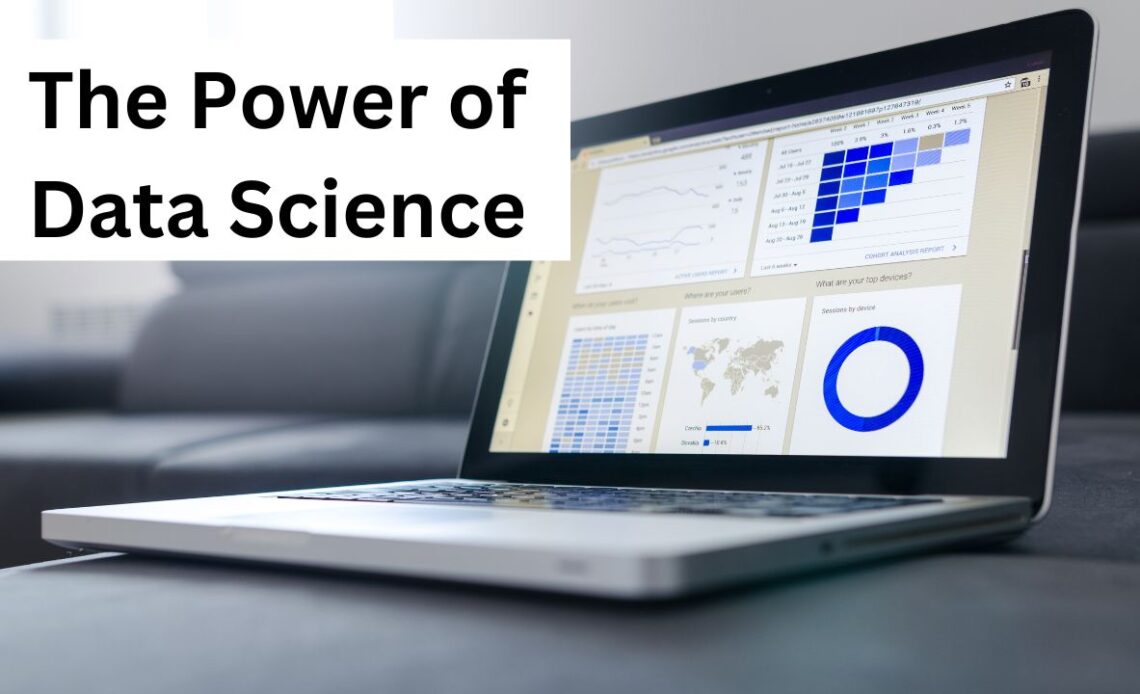Utilizing the potential of data is essential in a time of information overload. A multidisciplinary area called data science is leading this change. It combines statistics, computer science, subject-matter knowledge, and visualisation techniques to glean valuable insights from enormous data sets and Tuple vs List: Difference Between List and Tuple in Python. We’ll take a thorough tour of the world of data science in this post, looking at its importance, uses, and the abilities needed to succeed in this fast-paced industry.
The Significance of Data Science
Information has emerged as the fundamental building block of advancement and innovation in today’s data-driven society. At its foundation, data science is the art of drawing important conclusions and information from unprocessed data. Organisations across sectors can make educated choices, optimise operations, and innovate in previously unheard-of ways thanks to this game-changing field.
Informed Decision-Making
Data science has many advantages, but one of the most important is its ability to encourage thoughtful decision-making. Businesses may optimise operations, reduce risks, and fine-tune their strategy by analysing past data and forecasting future patterns. For instance, data-driven insights may guide inventory management in the retail industry, ensuring that items are available when demand is at its highest.
Personalization and Customer Engagement
Businesses may gain a deeper understanding of their consumers through data-driven insights. Personalised product suggestions, targeted marketing campaigns, and improved consumer experiences are all made possible by this information. For instance, sophisticated recommendation algorithms are used by e-commerce behemoths to propose things to users based on their browsing and purchase histories.
Innovative Solutions
By revealing patterns and possibilities that would not be seen using conventional techniques, data science fosters innovation. Predictive analytics helps in early illness identification and treatment planning in industries like healthcare, therefore this is clear. For instance, patient data may be analysed by machine learning algorithms to forecast the likelihood of specific medical disorders, enabling preemptive intervention.
Optimizing Efficiency
Process optimisation is made possible by data science in sectors like manufacturing and logistics. Organisations may increase overall efficiency, optimise procedures, and cut costs by analysing operational data. A logistics business, for instance, may utilise data science to optimise routes, cutting down on fuel use and delivery times.
Applications of Data Science
Data science has revolutionised how businesses run and develop across a wide range of sectors.
Healthcare and Medicine
With applications in drug development, personalised medicine, medical imaging, and patient outcome forecasting, data science is revolutionising healthcare. Large volumes of patient data may be analysed using machine learning models to help with diagnostic and treatment strategies. Furthermore, personalised treatment strategies based on a person’s genetic profile are being developed using genomics data.
Finance and Economics
Data science is employed in the financial sector for algorithmic trading, portfolio optimisation, fraud detection, and risk assessment. Making wise investment decisions and managing financial resources are made easier with the aid of predictive models. To make split-second trading judgements, high-frequency trading platforms, for instance, mainly rely on data science algorithms.
E-commerce and Retail
Retailers use data science to estimate demand, improve consumer experiences, and optimise pricing tactics. Based on a customer’s interests and behaviour, recommendation systems driven by machine learning algorithms provide product recommendations. Furthermore, prices are dynamically adjusted in real-time according to variables including demand, competition pricing, and inventory levels.
Cybersecurity
In the digital era, protecting sensitive information is essential. Through anomaly detection, pattern identification, and behaviour analysis, data science is essential in identifying and reducing cybersecurity threats. For instance, intrusion detection systems utilise machine learning algorithms to find odd patterns in network data that could point to a cyberattack.
Environmental Sustainability
To analyse environmental data, track pollution levels, and forecast climate change, data science is used. The formulation of sustainable practises is influenced by this data. For instance, climate models forecast future patterns based on historical climate data, assisting decision-makers in developing environmental policies.
Skills for Aspiring Data Scientists
A varied mix of abilities and knowledge are required for someone to succeed in the field of data science.
Programming Proficiency
It is crucial to have a strong foundation in programming languages like Python, R, and SQL. The foundation for data manipulation, analysis, and modelling is provided by these languages.
Statistical Knowledge
For understanding data and developing precise models, it is essential to comprehend statistical ideas and methods. Probability, hypothesis testing, and regression analysis are all included in this.
Data Wrangling and Cleaning
A significant portion of a data scientist’s responsibilities include cleaning and preparing data for analysis. It is essential to be knowledgeable with data preparation methods and tools like Pandas.
Machine Learning and Algorithms
Building predictive models requires a thorough understanding of machine learning algorithms and methods including classification, regression, clustering, and deep learning.
Data Visualization
Effective insight-sharing is essential. Knowledge of data visualisation tools like Matplotlib, Seaborn, and Tableau is helpful in producing visually appealing data representations.
Domain Knowledge
It is essential to comprehend the specific domain in which data science is being used. This information helps with the creation of pertinent queries, model selection, and result interpretation.
Conclusion
The foundation of the information era is data science. Its effects may be seen in almost every aspect of modern life, including banking and healthcare. The demand for qualified data scientists is only going to increase as businesses and organisations continue to gather data. As the world becomes more and more data-driven, aspirant data scientists have the ability to decipher insightful information and effect constructive change. The path to data science is a path through the centre of contemporary development, where knowledge is transformed into innovation.



